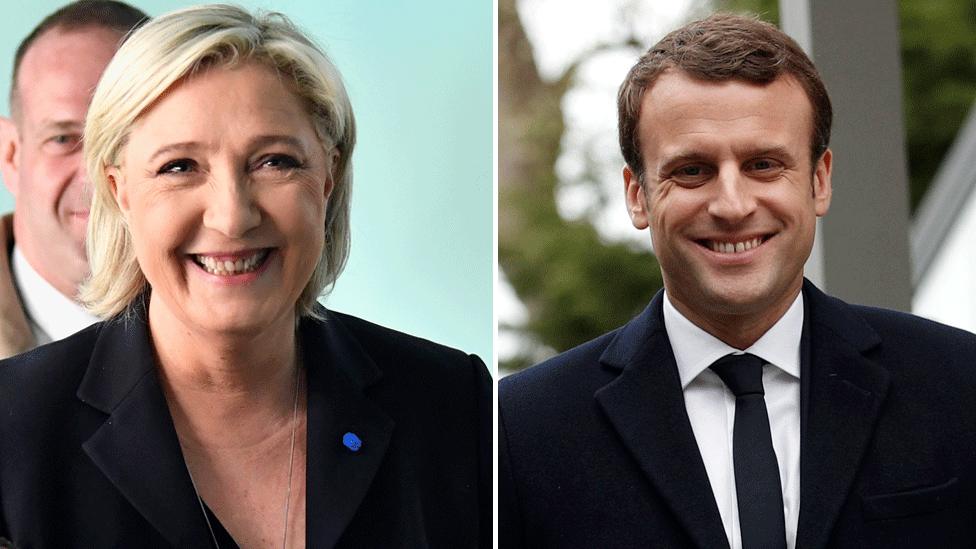Macron moves France into uncharted waters
- Published
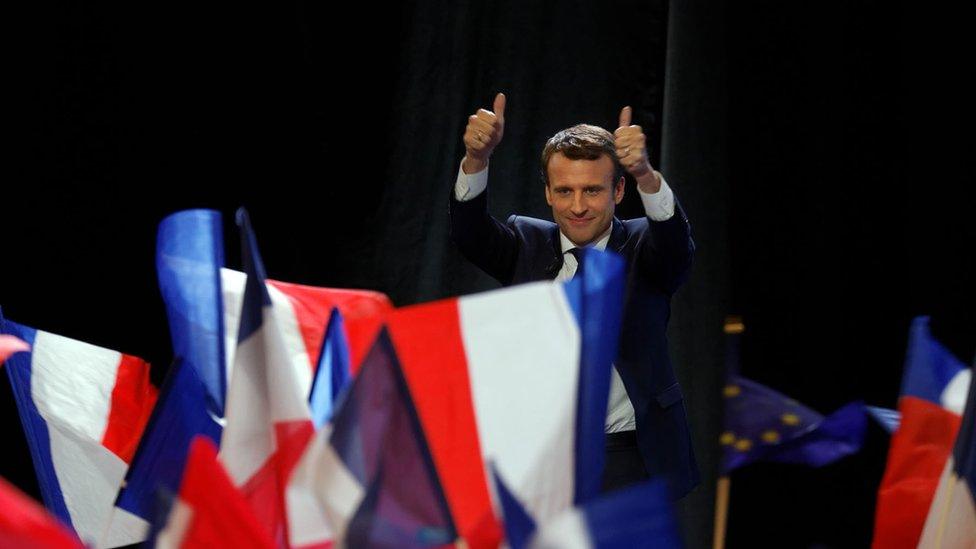
French presidential candidate Emmanuel Macron is the favourite to win the next round, but what then?
France is entering uncharted political water - and it is not because Marine Le Pen is in the final round of the presidential election.
It is because the next head of state is almost certain to be Emmanuel Macron.
Let us remind ourselves how preposterous this state of affairs would have seemed just a few months ago.
Here was a man who, at 39, had the gall to walk out of government - turning his back on his protector, President François Hollande - and set up his own political "movement".
He had no experience of electoral politics. He had no party backing. He had none of the organisational support of the Socialists, the Republicans or even the Front National.
And yet somehow Emmanuel Macron read the zeitgeist. He found an untapped reservoir of support among the young, the disillusioned-but-optimistic, the anti-cynics.
Through his energy, his youth, and his incomparable charm and articulacy, he has pulled off a political coup that will go down in the annals.
Macron has, of course, also been blessed by good luck.
Emmanuel Macron: "I hope to become your president"
It helped that the two main parties held primaries that selected candidates from the outer edges of their respective political camps: Benoit Hamon for the left and François Fillon for the right. It created a monumental opening down the centre.
And it helped even more that Fillon's campaign was torpedoed even before it started by the scandal over his wife's job - and perhaps more by subsequent revelations over his attitude to money.
Of all the losers in the first round, Fillon's fall is the most painful. His name is now mud in his party.
Deep divisions
And it should also be remembered that although Emmanuel Macron is the clear victor of the first round of the vote - and the likely next head of state - the country is deeply divided.
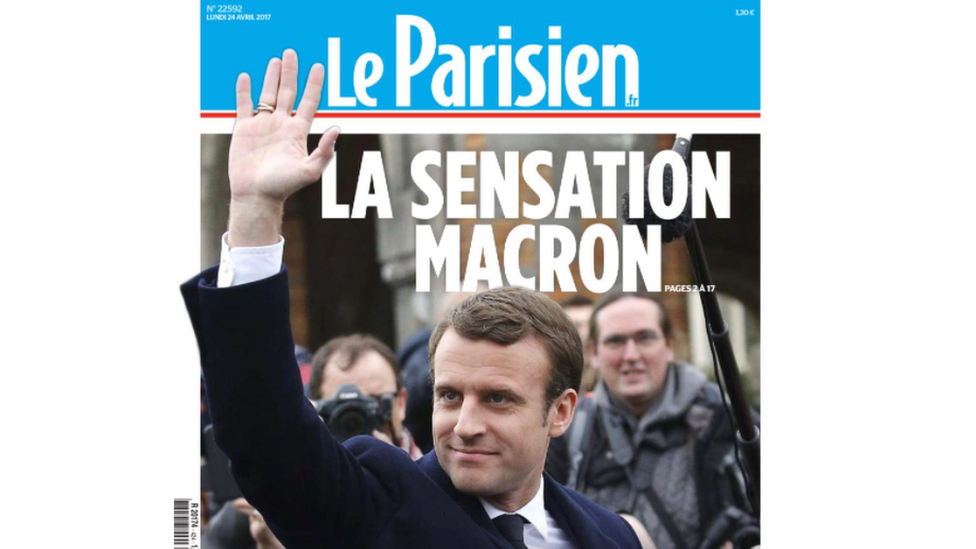
French newspaper Le Parisian hailed Macron's first-round win as sensational
When the two-round system was created, it was expected that the main candidates of right and left would get around 30% in round one, and then rally satellite parties to their side for the run-off.
But this time there were four candidates - with four very different versions of what to do next - all split nearly evenly at around 20%. Macron did the best but he remains a minority leader.
On 7 May he will almost certainly become a majority leader. Marine Le Pen will fight a hard campaign, and her vote will go up (which her father's barely did between the two rounds in 2002), but it is almost inconceivable that she will win.
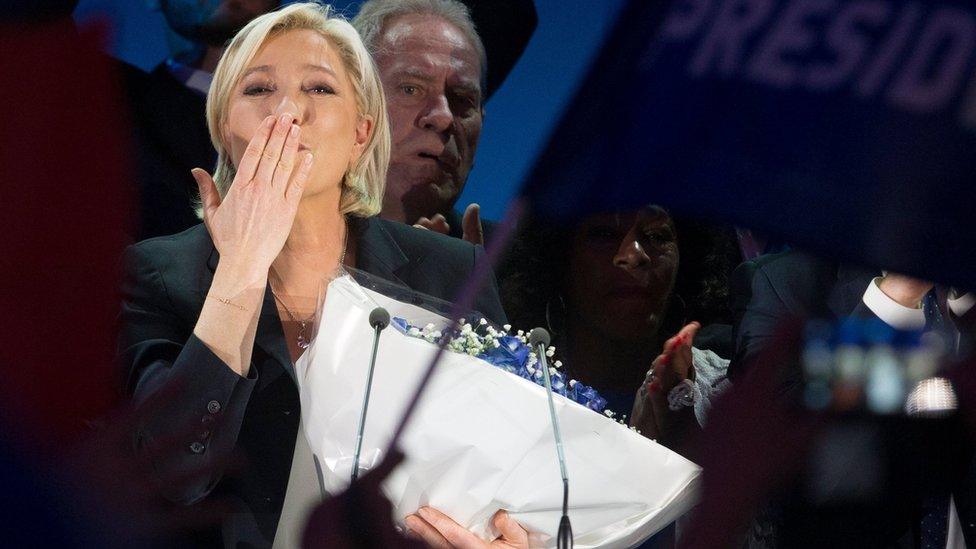
Marine Le Pen celebrated her victory in the first stage but is not predicted to win the presidency
What would President Macron do?
But then will come the uncharted water.
Not being from a political party, how will Emmanuel Macron ensure a majority in parliament? Without this he cannot rule in the manner in which French presidents have grown used to.
He says the "logic" of the system will prevail, and the French will elect a majority of candidates from his En Marche movement. But that is far from self-evident. The parties - especially the centre-right Republicans - will want their revenge, and do everything to ensure they keep up their numbers in the National Assembly.
So then - without a majority - a President Macron would be made to negotiate his programme through parliament. The prime minister would become a crucial figure. Power would shift. It would be a very different Fifth Republic.
- Published23 April 2017
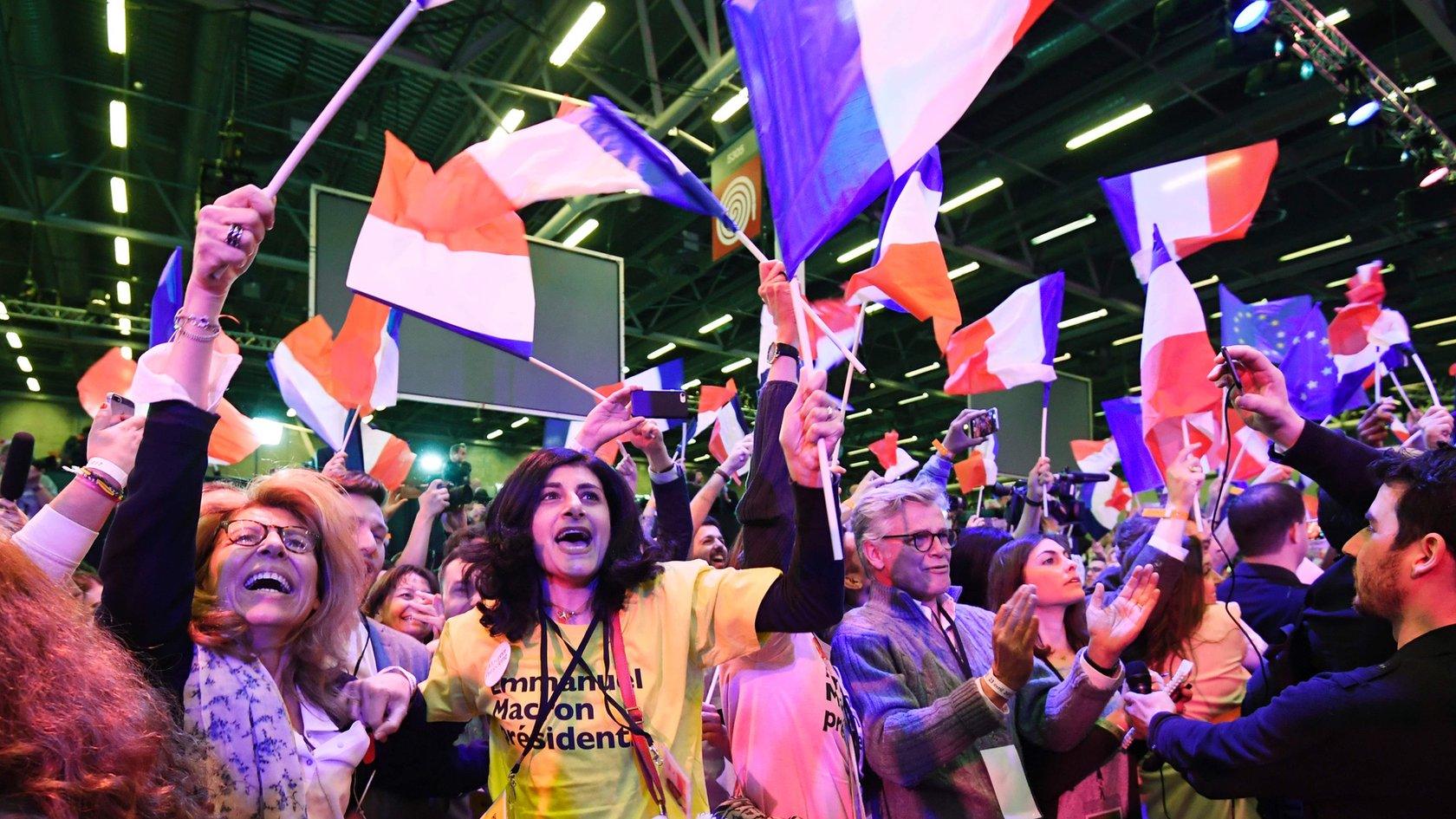
- Published24 April 2017
